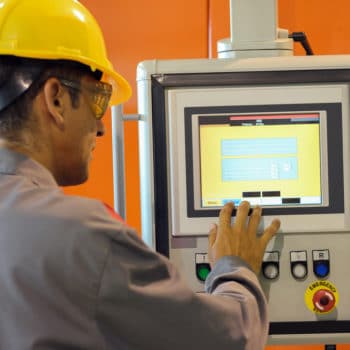Why We Love It
-
$103,720Potential Avg. Salary
-
-3.7%Job Growth Rate
-
Don't Take Work HomeCareer Attribute
-
Fast Paced CareerCareer Attribute
A production manager is responsible for leading and integrating all production processes to ensure that a quality product is manufactured in sanitary conditions. He or she manages the production line while applying improvement principles.
Recommended Schools
What is a Production Manager?
Duties
The following duties are executed by the production manager:
- Oversee recruiting efforts which includes hiring, training, developing and evaluating staff; undertake corrective action as per company policies.
- Recommend and implement updates to existing operating methods and process to maximise production efficiency.
- Establish clear objectives and goals for all personnel while maintaining constructive working relationships.
- Coordinate with the Regional production manager to achieve company and market strategy goals.
- Work alongside departments like Planning, Quality, Maintenance and Logistics to ensure that the correct inventory mix is available, a balance of production operations and raw material requirements.
Day In The Life
A production manager’s work primarily involves managing daily production operations via careful planning and oversight. It is up to you to ensure that all standards and expectations are clearly met in a cost-effective and efficient manner without compromising on quality. To this end, you will also be responsible for monitoring and training production crews so they are committed to meeting all safety and production requirements. Every day, you will look after staff and also make certain that they have adequate protection against emerging safety hazards as per environmental permit requirements. You could also be assessing different production lines like overseeing a packaging line or overseeing tests on airbags in vehicles.
If you are working for a larger organisation, you might be supported by a production supervisor who will provide direction to the production department when you are occupied with other tasks. Alternatively, at a smaller organisation, you will have a more hands-on job working on the noisy shop floor and supervising staff. Either way, you are expected to keep up with the latest trends on information and technology that are affecting functional areas to better promote innovation and ensure organisational compliance.
Work Schedule
As a production manager, you will work for 40 hours per week which may involve shifts and late hours. You are expected to report to work as per schedule and be on time right from lunch, breaks, and the beginning of the shift. Since much of the work is around tight deadlines, you need to be on call at all times to deal with unexpected obstacles. Further, you might be based on one site but also responsible for other operations at multiple locations., meaning you will be required to travel occasionally.
Growth Of The Job
As a production manager, the possibilities you have for growth depends on the nature of production. Companies sometimes perform different types of production which adds to the complicated nature of the role. Previously, the employment of industrial production managers has been unaffected by fluctuations in productivity as their work activities involved increasing effectiveness among staff. Many professionals eventually head to more strategic senior positions and handle strategic planning or management. You may also progress to advanced professional qualifications upon encouragement from your employer to better future job prospects.
Typical Employers
Production managers are hired by manufacturing and processing companies. This job can be very diverse and complex due to the amount of duties and circumstances which must be handled. Most individuals in these positions begin their career as a junior level trainee or as a production supervisor. With adequate experience, they are eventually promoted to a managerial position. The industries with manufacturing are wide-ranging, e.g. chemical engineering, heavy engineering, textiles, printing, pharmaceuticals, automobiles, aerospace, etc.
Recommended Schools
How To Become a Production Manager
The minimum requirement for joining this cross-functional profession is having a high school diploma or GED. However, sometimes this requirement varies depending on the type of industry you will be joining as employers may request specific qualifications like production engineering, business management, materials science, biochemistry and electrical engineering.
Having prior work experience is always beneficial in this sector, such as vacation employment, an internship at a recognized company or work placement during college. You must also have a willingness to lead others and demonstrate a strong knowledge of production operations. Other valuable skills include past experience with supervising employees, working knowledge of budgets and financials, conducting safety training, and performing preventive maintenance on varied equipment. If you do not have a relevant degree, it will simply take longer to progress from junior employee to a managerial role.
Production Manager Salary Data
We’ve provided you the following to learn more about this career. The salary and growth data on this page comes from recently published Bureau of Labor Statistics data while the recommendations and editorial content are based on our research.
National Anual Salary
Low Range
$72,210Average
$103,720High Range
$162,240National Hourly Wage
Low Range
$35/hrAverage
$50/hrHigh Range
$78/hrHow do Production Manager salaries stack up to other jobs across the country? Based on the latest jobs data nationwide, Production Manager's can make an average annual salary of $103,720, or $50 per hour. On the lower end, they can make $72,210 or $35 per hour, perhaps when just starting out or based on the state you live in.
Salary Rankings And Facts
#58 Nationally for All Careers
Above Average Salary Nationally
Highest Education Among Production Managers
- 1.3% Doctorate
- 12.2% Masters
- 31.8% Bachelors
- 9.2% Associates
- 23.5% College
- 18.7% High School
- 3.3% Less than High School
Job Growth Projections and Forecast
2014 Total Jobs
173,4002024 Est. Jobs
167,000Job Growth Rate
-3.7%Est. New Jobs
-6,400How does Production Manager job growth stack up to other jobs across the country? By 2024, there will be a change of -6,400 jobs for a total of 167,000 people employed in the career nationwide. This is a -3.7% change in growth over the next ten years, giving the career a growth rate nationwide of Above Average.
Growth Rankings And Facts
#686 Nationally for All Careers
Above Avg. Growth Nationally
What Companies Employ The Most Production Managers
| Industry | Current Jobs | New Jobs Needed | % Increase |
|---|---|---|---|
| Motor vehicle parts manufacturing | 7,600 | -200 | 0% |
| Management of companies and enterprises | 7,300 | 300 | 0% |
| Plastics product manufacturing | 7,300 | -600 | -1% |











